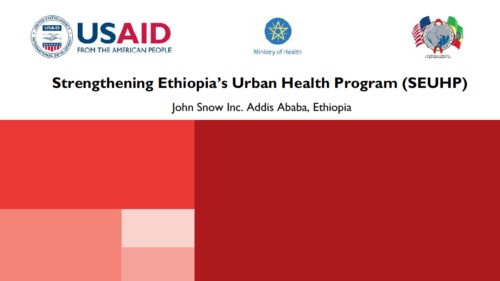Strengthening Ethiopia’s Urban Health Program (SEUHP)
John Snow, Inc. (JSI) is supported by the U.S. Agency for International Development (USAID) to improve the health status of the urban population in Ethiopia by reducing HIV/tuberculosis (TB)-related and maternal, neonatal, and child mortality and morbidity, as well as the impact of communicable and non-communicable diseases (NCDs)
